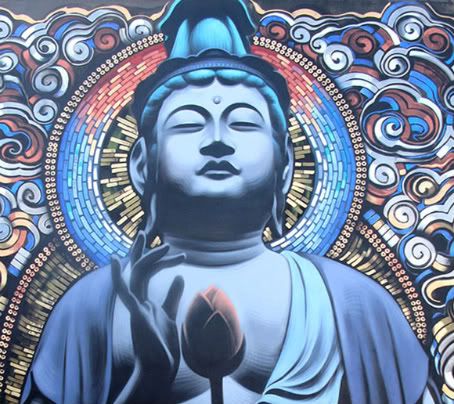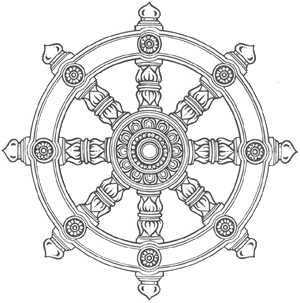The more ripe a cluster of rice becomes, the lower it bows down its head.
A Japanese proverb

Shin Buddhism, or the teachings of Shinran (1173-1262), teaches us the importance of humility, the most important universal virtue. Many people think that the ultimate goal in Buddhism as well as human life is to become good. But according to Shinran, it is to become humble. Being good is not good enough; we must become humble persons. We must know our evilness, the existence of our ineradicable egoism. We must know our ignorance, the limitations of our intellects. We must become humble persons who can say, "I'm evil and ignorant." In order to explain that Shin Buddhism teaches us the importance of humility, let me first discuss the two stages of life that Shinran experienced.
The most important event in Shinran's life was his meeting with Honen (1133-1212), the founder of the Jodo School, when Shinran was twenty-nine. This event divided his life into two stages: the period before the meeting was the first stage and the period after it was the second stage.
When Shinran met Honen, Shinran realized that he had had a shallow view of Buddhahood. His thoughts on the subject went through a total transformation. Before Shinran met Honen, Shinran thought that a Buddha was a "good" and "wise" person-a holy person who was possessed of wonderful virtues. In order to become such a Buddha, Shinran attempted to purify himself by eliminating evil passions. But he could not attain Buddhalhood. Not only was he unable to become a Buddha, he was feeling more and more depressed and miserable. His goal of Buddhahood seemed far away. He could not understand what was wrong.
When Shinran met Honen, Shinran saw a Buddha in him. But the Buddhahood that he saw in Honen was totally different from what he had anticipated. More than anything else, Shinran was moved because Honen was a humble student. Honen identified himself only as a student of Shan-tao (613-681), a Chinese Pure Land master. Honen said that the only important thing for him was to learn from his teacher. This way, Honen embodied the spirit of a Buddha by the name of Namu Amida Butsu (Bowing Amida Buddha). Namu (Bowing) is a part of the Buddha's name. The Buddha's name symbolizes the humblest human spirit. Before Shinran met Honen, he had thought that a Buddha was a teacher, a respected and worshipped person. But now, having met Honen, he realized that a Buddha was actually a student, a respecting and worshipping person.
Further, before Shinran met Honen, he had thought that a Buddha was a "good" and "wise" person. But now Shinran realized that such an understanding of Buddhahood was a shallow one. He realized that he had been seeing Buddhahood only objectively, from outside. He had not known the subjective reality of Buddhahood--what a Buddha would say about himself. Although people would see a Buddha from outside and describe him by saying, "He is good and wise," a Buddha would describe himself by saying, "I'm evil and foolish." Having met Honen, who had deep insight into his own evilness and ignorance and said, "I'm evil and foolish," Shinran realized that the true essence of Buddhahood was humility--deep insight into one's own evilness and foolishness.
Thus in the first stage, i.e., before he met Honen, Shinran thought that a Buddha was a "good" and "wise" person, and Shinran made efforts to become such a Buddha. But in the second stage, i.e., after he met Honen, Shinran realized that the essence of Buddhahood was humility--studentship and insight into evilness and ignorance.
Thus, having been moved by Honen's humble spirit, Shinran also became a humble student. He recognized that he had ineradicable egoism at the basis of his being and that he had no goodness that he could rely on as the basis of his liberation. Thus he stopped his practices designed to transform himself into a holy person. He realized that a wonderful Dharma tradition had already been given to him and that the only thing necessary for him was to listen to it. This realization was his liberation.
"What Is Shin Buddhism?"
by Dr. Nobuo Haneda
Reprinted by permission of the The Maida Center of Buddhism,
2609 Regent Street,
Berkeley, CA 94704,
(510) 843-8515
source

programming by DPC